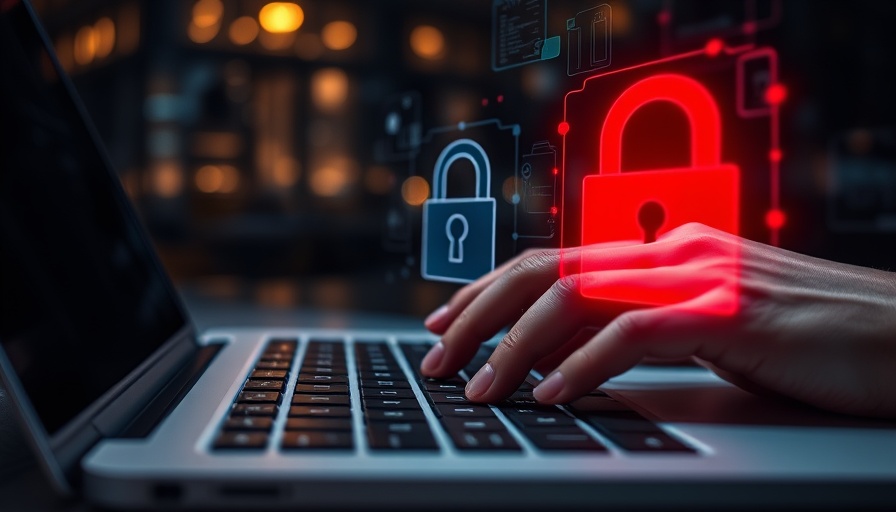
Understanding Cyber Risks in Hospitality
For restaurant owners and managers, cybersecurity may seem like a back-office concern, overshadowed by the day-to-day hustle of maintaining operations and delivering exceptional customer experiences. However, the rise in sophisticated cyberattacks targeting the hospitality sector makes it imperative to recognize the vivid threat landscape.
Why Cybercriminals Target Hospitality
The hospitality industry has increasingly become a prime target for cybercriminals, and the methods they employ are evolving rapidly. With responsibilities such as guest services and staff management, restaurant owners often overlook the vulnerabilities associated with cyber threats. Yet, as illustrated by a recent incident involving a restaurant that lost $450,000 due to a vendor email scam, the consequences can be devastating.
The Hidden Costs of Trusting Third-Party Vendors
Many businesses mistakenly believe that using third-party platforms like OpenTable or Toast absolves them of cybersecurity responsibilities. However, it is essential to understand that under U.S. data privacy laws, the ultimate responsibility for safeguarding customer information lies with the business itself. This misconception was highlighted in a case where a restaurant bore the brunt of costs after a vendor's system was hacked, exposing sensitive data.
Emerging Threats: AI and POS Tampering
The advent of artificial intelligence has equipped cybercriminals with sophisticated tools, making impersonation scams easier to execute. A recent incident in which a restaurant's CEO was impersonated with a cloned voice exemplifies the vulnerabilities businesses now face. Additionally, as point-of-sale systems become widespread, tampering poses a significant risk that can lead to severe data breaches if devices are left unattended.
Implementing Strong Cyber Hygiene Practices
Even seemingly innocuous actions, like charging personal devices around company computers, can introduce significant security risks. Restaurant owners must prioritize employee training in cybersecurity practices, emphasizing the importance of maintaining robust company policies to protect sensitive information.
Conclusion: Safeguarding Your Business Against Cyber Threats
The interconnected nature of today’s digital ecosystems means a single lapse can have cascading effects. As cyber threats evolve, so too must our strategies to counter them. Taking proactive steps to educate staff, enforce security measures, and scrutinize vendor relationships will strengthen the cybersecurity posture of any hospitality business.
In a landscape riddled with risks, ensuring the security of your operations not only protects your finances but also maintains the trust of your guests, which is paramount in the hospitality industry.
 Add Row
Add Row  Add
Add 

 Add Row
Add Row  Add Element
Add Element 




Write A Comment